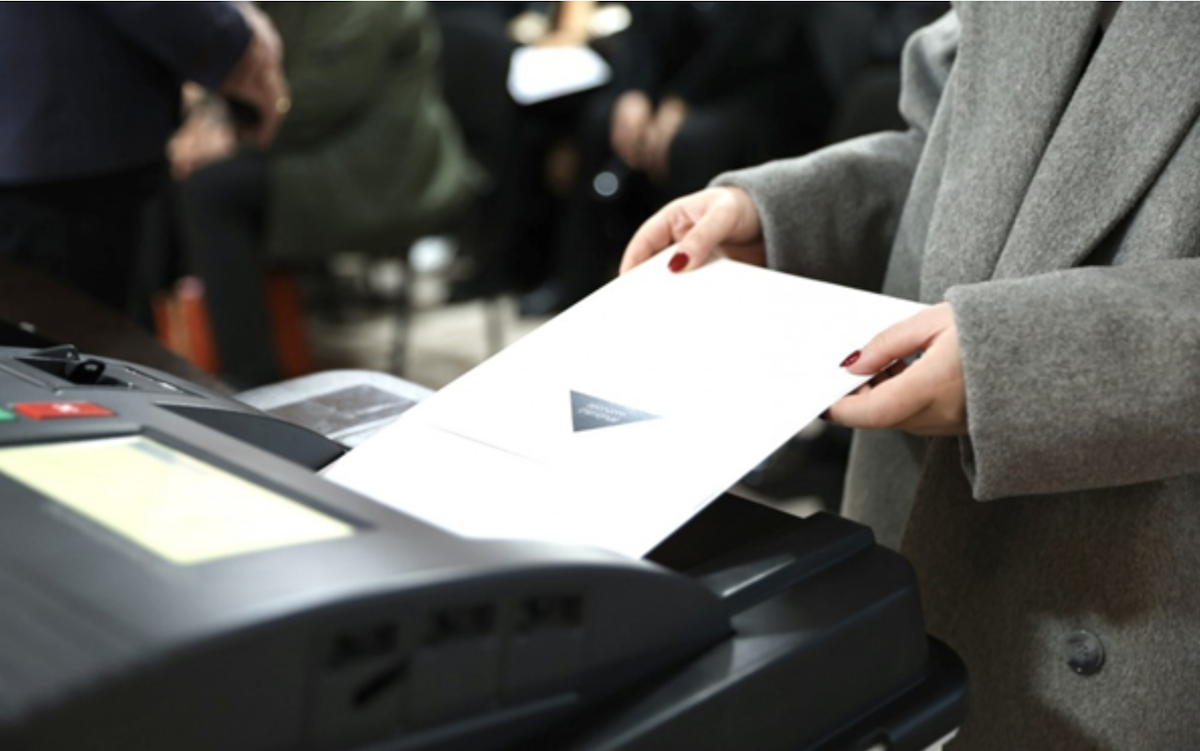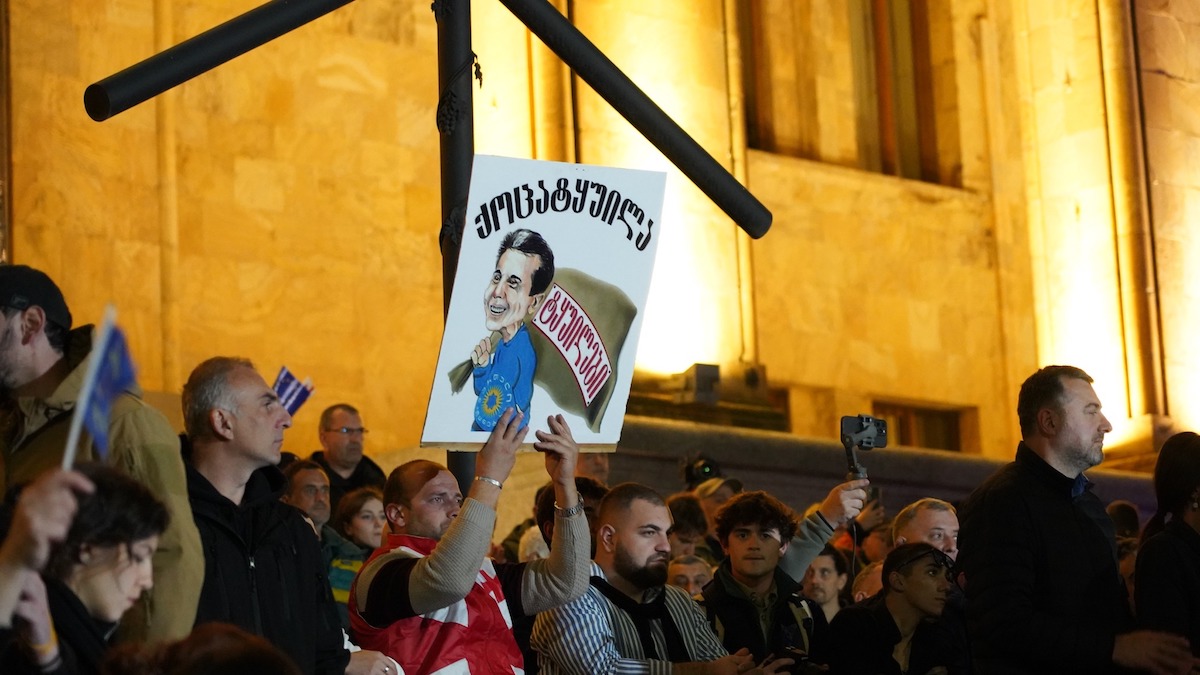
GYLA says voting secrecy compromised
The Georgian Young Lawyers’ Association (GYLA) reported that a technical test was conducted at the Tetritskaro court to examine the paper quality of ballots printed for the parliamentary elections. The test revealed that, when a ballot was placed in the counting machine, a mark made by voters with a marker was visible on the back of the ballot.
“As part of the ongoing judicial process, the judge, at GYLA’s request, randomly selected ballots from three districts in the Tsalka and Tetritskaro regions of Georgia for examination. The inspection confirmed the presence of marker traces on the reverse side of the ballots.
During the testing process, the judge used a vote-counting machine, a ballot, a marker, and an envelope in a controlled setting. The court’s technical examination showed that, when the ballot was placed in the machine, the marker mark used by the voter to indicate their chosen candidate became visible on the back of the paper,” the Georgian Young Lawyers’ Association stated.
The case is being heard by a magistrate judge at the Tetritskaro court, former district court chair Vladimir Khuchua.
On October 30, GYLA called for the annulment of results from all districts where electronic voting took place. Nona Kurdovanidze, chair of GYLA, claimed that the principle of secret voting had been widely violated. GYLA’s complaints were initially reviewed by district election commissions starting at 6:00 p.m. on October 31, and the process later continued in court.
On November 3, the Tbilisi City Court denied the plaintiff’s request to inspect sealed ballots at randomly selected polling stations, bringing the Central Election Commission (CEC) into the case as a third party.
GYLA reported that concerns over ballot secrecy were raised as early as the pre-election period, during CEC introductory meetings. Human rights defenders urged CEC head Giorgi Kalandarishvili to address these risks on September 17. On September 28, the Georgian Young Lawyers’ Association received a response from the CEC stating that the ballot used in the introductory meeting was a test sample and that ballots of different quality would be used on Election Day.
GYLA says voting secrecy compromised

